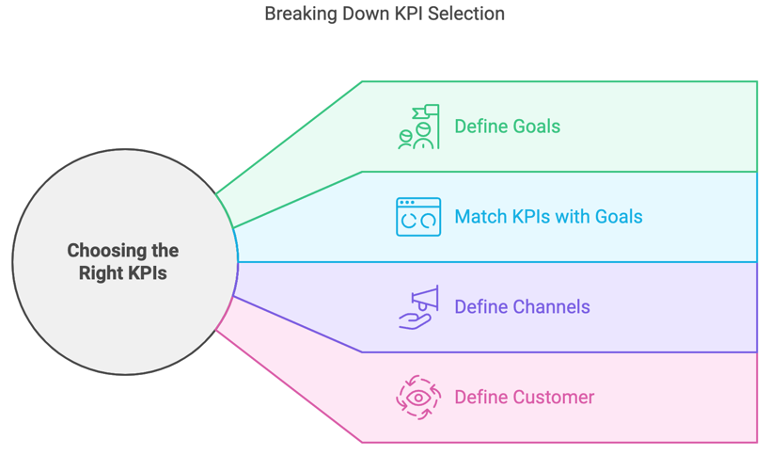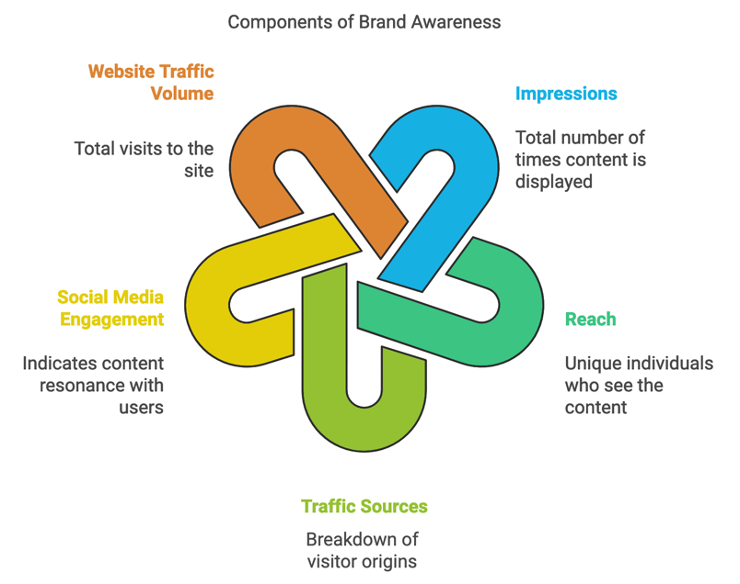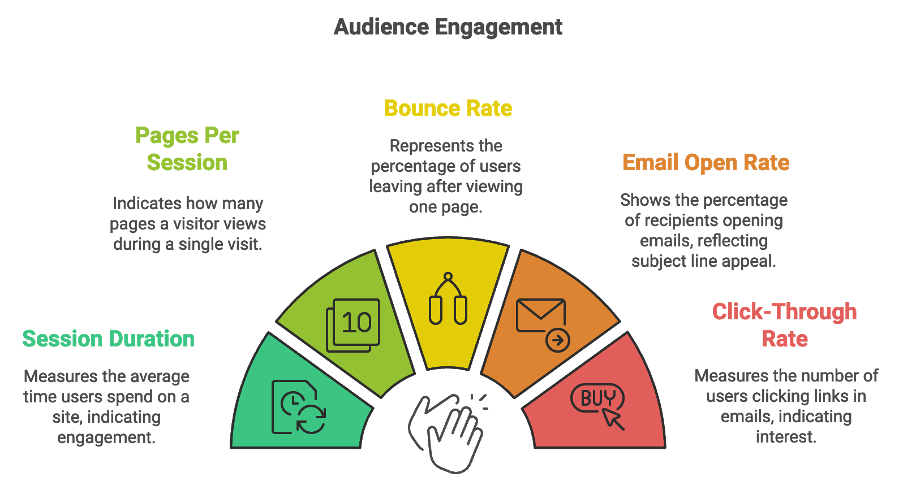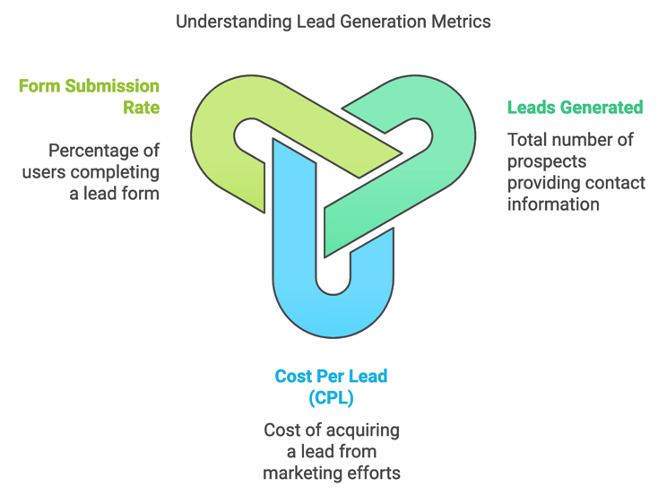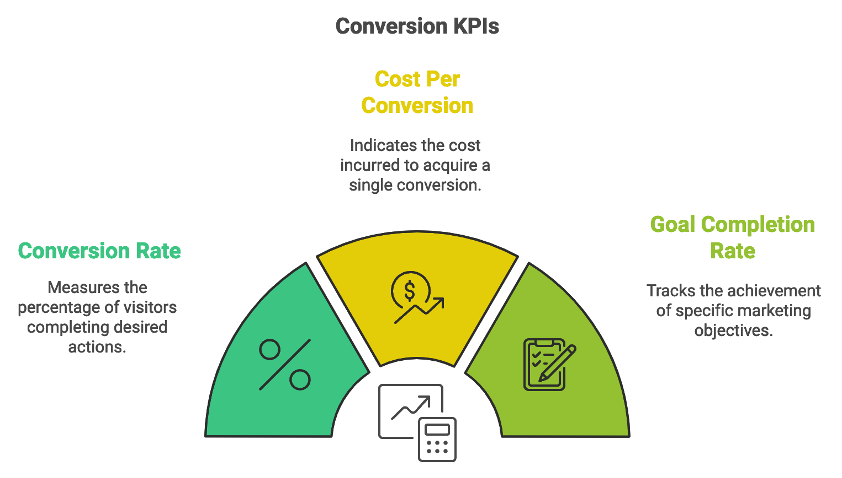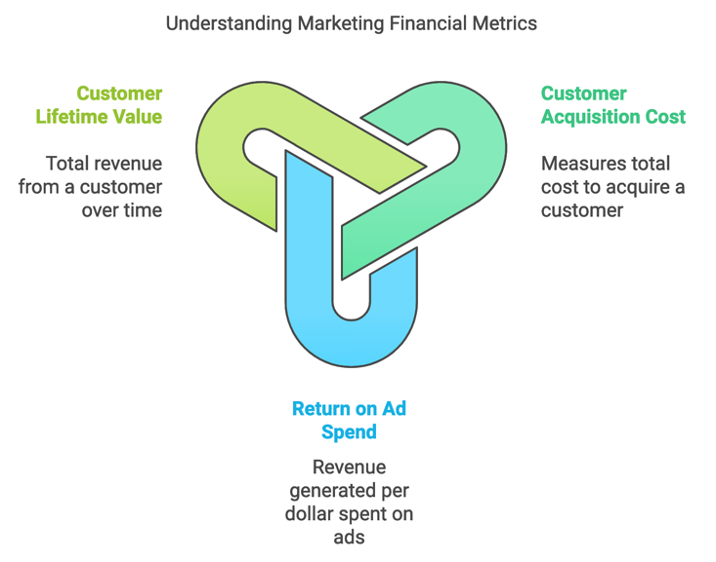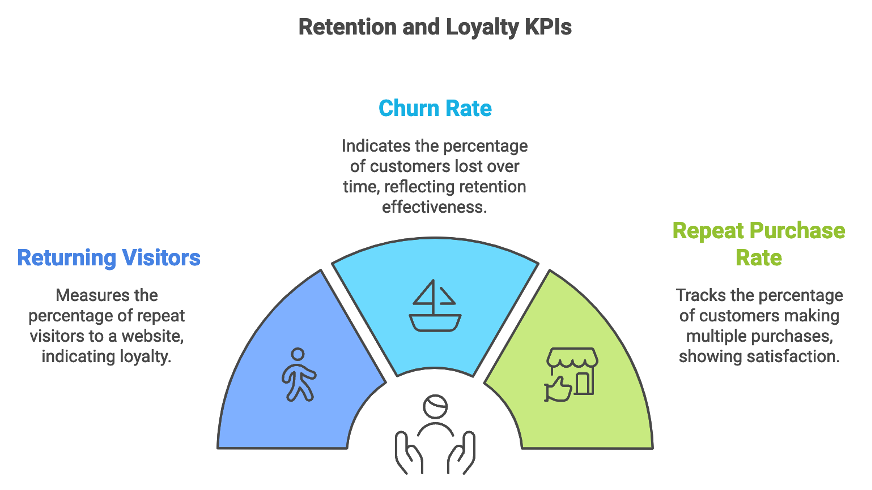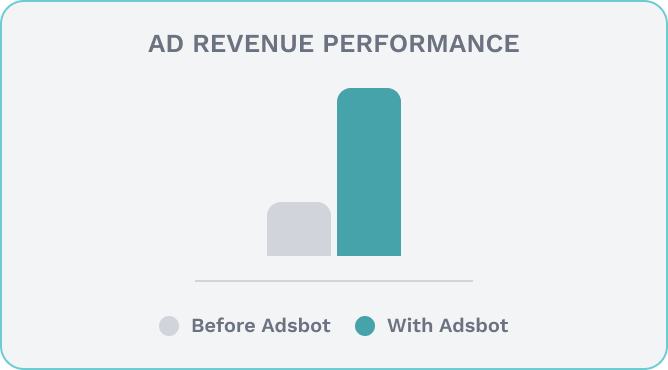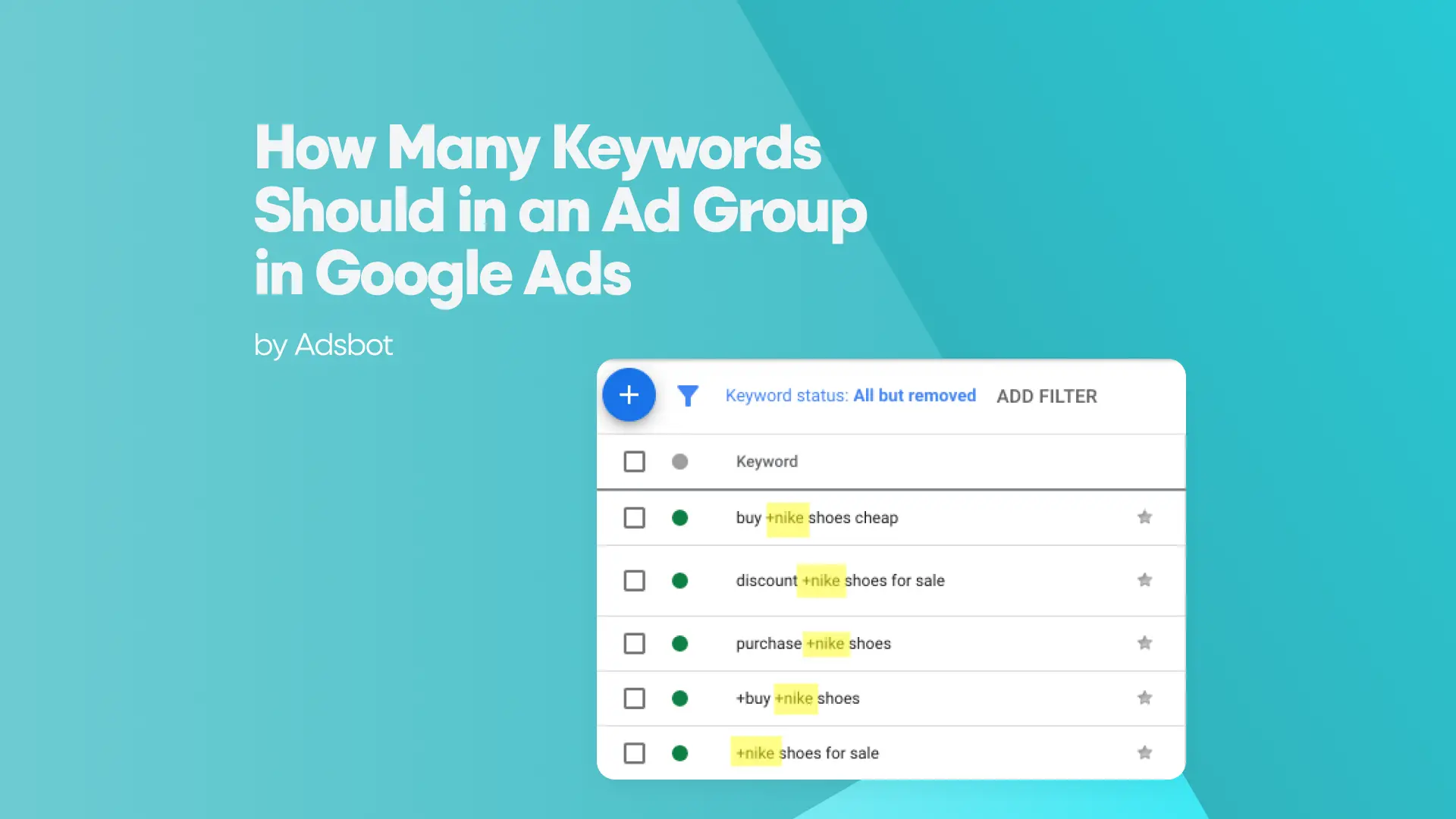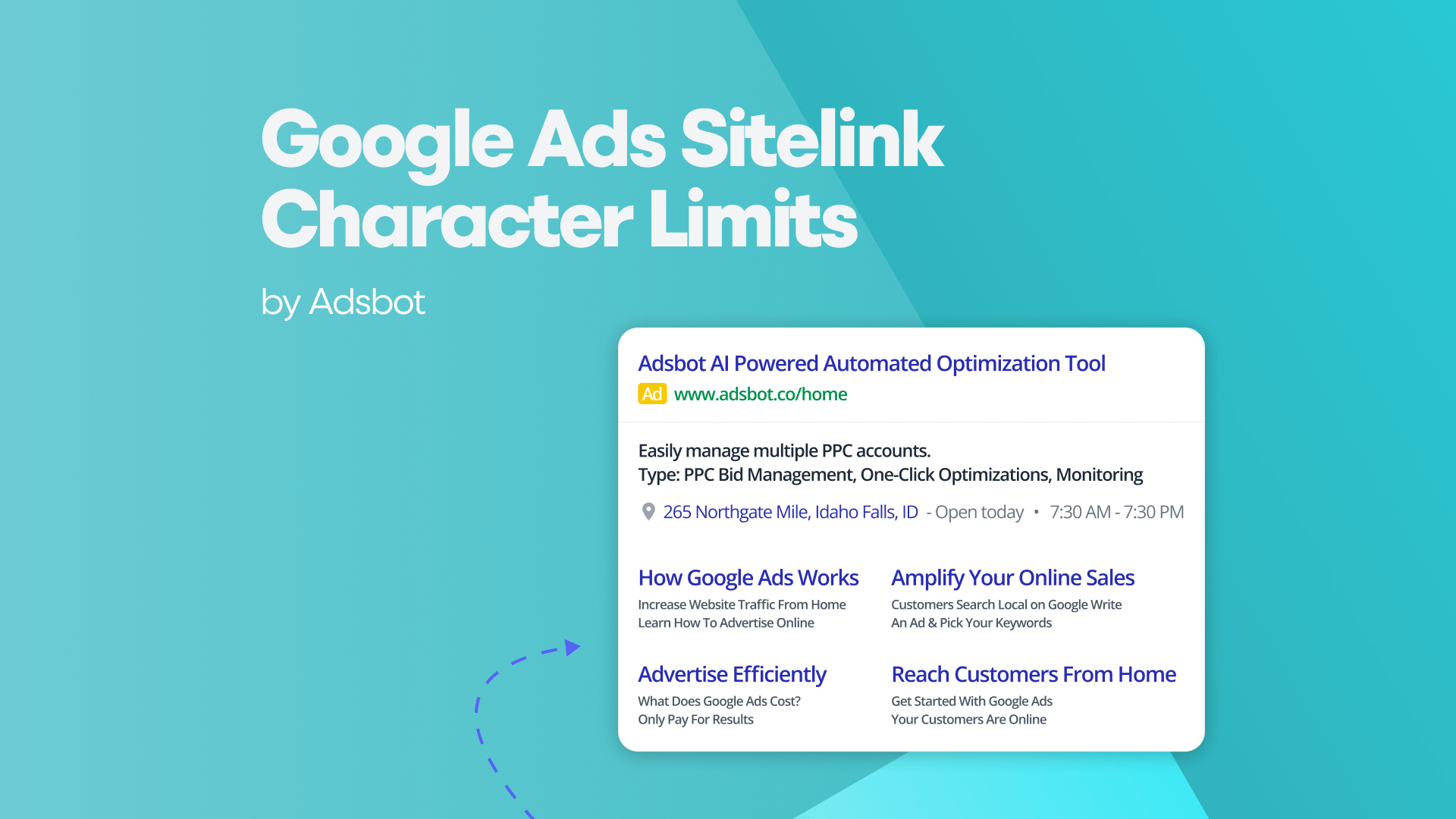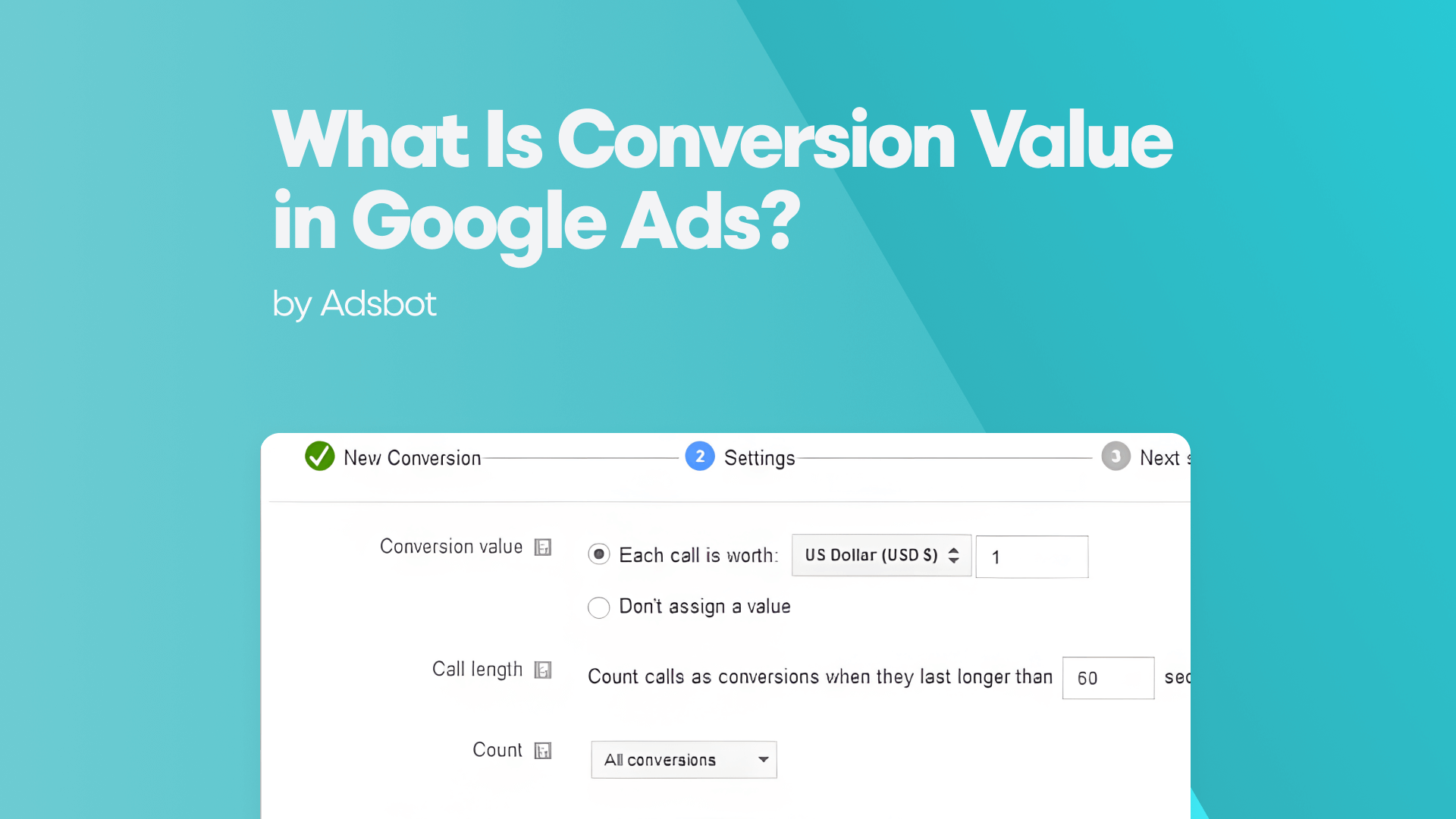Today’s competitive digital world requires effective and creative marketing efforts for sustainable growth and success, while business strategies based on data-driven insights and decisions play a critical role in achieving those business goals with optimized efforts and budgets.
Here comes the term KPIs (Key Performance Indicators) to support you in creating measures to understand, analyze, and improve your strategies to achieve the growth and success that you aim for.
What Are KPIs for Digital Marketing?
KPIs in digital marketing are quantifiable, measurable values that indicate how well a campaign, channel, or overall strategy is performing.
Digital marketing KPIs and metrics lead you to drive impactful decision-making by giving you the possibility to monitor the results of your marketing activities and to track whether or not they are achieving their objectives. Based on those evaluations, you can understand which media strategy generates more profit, where to invest, where your customers are coming from, cost per acquisition, etc.
Digital marketing requires rapid decisions in a fast-paced environment and being up to date on global trends in business, marketing trends, consumer behaviors, evolving digital platforms, and various channels.
In this complex and challenging world of a digital marketer, setting the right KPIs and tracking them in a strategic, time-saving way is the key to successful marketing campaigns and business growth.
How to Choose the Right KPIs
We will dive into digital marketing KPIs and metrics in this article, but first, you should note that it is crucial for you to track things that give valuable insights for your strategy. For example, you might be tempted to track the number of visitors to your website, but if your goal is to increase email sign-ups, focusing solely on traffic won’t provide meaningful insights for your strategy.
Besides, choosing the right KPIs for one business may differ significantly from another, as it is not a one-size-fits-all decision, so you should have specified effort when setting your digital marketing KPIs and metrics.
Choosing the right KPIs:
- Define your goals and be sure that your goals are SMART (Specific, Measurable, Achievable, Relevant, Time-bound)
- Match KPIs with your goals. For example, do you aim for an increase in sales or awareness among different segments of customers? To increase awareness, you should focus on impressions, whereas to increase sales, you should focus on conversion rates.
- Define your channels (Social media, email, SEO, PPC, or content marketing?)
- Define your customer (Who are you trying to reach, and where are they in the customer journey?)
Why These KPIs Are Critical
KPIs in digital marketing matter because they support you to:
- Monitor performances and understand what’s working
- Make data-driven decisions & increase efficiency
- Optimize budget & optimize campaign for maximum return on investment
- Improve conversion rates
- Be transparent and accountable
- Be aligned with all teams by setting clear benchmarks
By setting clear, quantifiable KPIs, you can evaluate progress toward specific marketing objectives.
Top KPIs for Digital Marketing
We can group the most important digital marketing KPIs based on the goals digital marketers aim to achieve, like awareness, engagement, or conversions.
- Awareness KPIs
- Engagement KPIs
- Lead Generation KPIs
- Conversion KPIs
- Revenue and ROI KPIs
- Retention and Loyalty KPIs
-
Awareness KPIs
These metrics help measure how well your brand or campaign is reaching and attracting your target audience.
- Impressions: Total number of times your content is displayed (e.g., in search results or social media).
Why it matters: High impression counts can indicate strong brand visibility, helping you understand if your content is reaching a broad audience.
- Reach: Unique individuals who see your content.
Why it matters: Monitoring reach ensures your campaigns are hitting your target audience, giving you an idea of the actual audience size you’re engaging with.
- Traffic Sources: Breakdown of visitor origins (organic, paid, direct, referral, etc.).
Why it matters: Knowing where your visitors come from helps you identify which channels are driving the most traffic, allowing you to refine your marketing strategy.
- Social Media Engagement (Shares, Likes, Comments): Indicates how often your content is resonating with users.
Why it matters: Engagement metrics show how well your content is connecting with your audience emotionally or intellectually, providing a gauge of campaign effectiveness.
- Website Traffic Volume: Total visits to your site, reflecting overall visibility.
Why it matters: Increased traffic indicates growing interest in your brand and can highlight the effectiveness of your awareness campaigns.
-
Engagement KPIs
These KPIs assess how effectively your audience is interacting with your content. Engagement metrics are essential because they indicate how well your content captures attention and encourages deeper interactions with your brand.
- Average Session Duration: The average time users spend on your site, indicating engagement and content relevance.
Why it matters: A longer session duration shows that visitors find your content useful or interesting, which can improve the chances of conversions.
- Pages Per Session: Measures how many pages a visitor views during a single visit.
Why it matters: Higher pages per session suggest strong interest and engagement, indicating your website is user-friendly and the content is compelling.
- Bounce Rate: Percentage of users who leave your site after viewing only one page. A low rate signals good engagement.
Why it matters: A low bounce rate reflects that visitors are exploring your website further, which could lead to higher conversion opportunities.
- Email Open Rate: Percentage of recipients who open your emails, showing how compelling your subject lines are.
Why it matters: A high open rate indicates that your email content resonates with your audience and grabs their attention, an important first step in driving engagement.
- Email Click-Through Rate: Measures how many users click links in your emails, reflecting interest in your offers, showing engagement and quality.
Why it matters: A higher email click-through rate shows your audience is not only opening your emails but also finding the content valuable enough to take action.
-
Lead Generation KPIs
Lead is a potential customer who has shown an interest in your product or service by filling out a form, subscribing, signing up for a free trial, etc. These KPIs are critical for measuring how well your campaigns are converting interest into tangible opportunities.
- Leads Generated: Total number of prospects who provided their contact information.
Why it matters: This metric provides insight into how effectively your campaigns are capturing interest.
- Cost Per Lead (CPL): Cost per lead (CPL) is the amount you pay to acquire a new lead from your marketing efforts. The cost of acquiring a lead, calculated as marketing spend divided by the number of leads.
Why it matters: Understanding CPL allows you to assess the cost-effectiveness of your campaigns and optimize spending to maximize ROI.
- Form Submission Rate: Tracks the percentage of users completing a lead form, indicating landing page effectiveness.
Why it matters: A high submission rate suggests that your landing page is persuasive and user-friendly, which can lead to increased lead generation and better campaign outcomes.
-
Conversion KPIs
These KPIs measure the effectiveness of your marketing efforts in converting leads or site visitors into paying customers, those contributing to your revenue. Studying these metrics helps you to understand whether your call to action and offer are performing well and if there’s a disconnect in the customer journey.
- Conversion Rate: Percentage of visitors who complete a desired action, such as a purchase or sign-up, or any other objective that marketing teams want the audience to complete.
- Formula: (Conversions ÷ Total Visitors) × 100
Why it matters: Conversion rate directly reflects how effectively your campaigns and website turn visitors into customers or leads, helping you identify areas for optimization.
- Cost Per Conversion: The cost of acquiring one conversion.
Why it matters: Understanding this metric helps you evaluate the efficiency of your spending and determine the profitability of your campaigns.
- Goal Completion Rate: Tracks specific objectives, such as event sign-ups or content downloads.
Why it matters: This metric shows whether your campaigns are achieving their intended goals, giving a clear indication of success and areas that need improvement.
-
Revenue and ROI KPIs
These KPIs evaluate the financial impact of your marketing efforts.
- Customer Acquisition Cost (CAC): Measures the total cost of acquiring one customer, including ad spend, marketing tools, and personnel costs.
- Formula: Total Marketing Spend ÷ New Customers Acquired
Why it matters: CAC provides a clear picture of how much it costs to gain each customer, helping you evaluate the efficiency of your sales and marketing investments.
- Return on Ad Spend (ROAS): The revenue generated for every dollar spent on advertising. You should be really careful while analyzing this data, as sales cycles vary from ROAS calculation periods, which may lead to inadequate representation.
Why it matters: ROAS measures the effectiveness of your advertising spend.
- Customer Lifetime Value (CLV): Projects the total revenue a customer will generate during their relationship with your business. CLV is a vital metric for understanding your business, assessing a customer’s value from a wider lens. To be profitable, your CLV needs to be higher than your sales and marketing spend for acquiring a single customer.
Why it matters: CLV is crucial for assessing long-term customer value, guiding strategies for retention and investment.
-
Retention and Loyalty KPIs
These KPIs focus on retaining customers and fostering long-term relationships.
- Returning Visitors: Percentage of visitors coming back to your site. High numbers indicate strong loyalty and engagement.
Why it matters: A high percentage of returning visitors shows that your content, products, or services are resonating with your audience, which can lead to increased loyalty.
- Churn Rate: Percentage of customers lost over a specific period. A lower churn rate reflects effective retention strategies.
Why it matters: Monitoring churn rate helps you identify weaknesses in customer retention efforts, enabling you to refine strategies to keep more customers engaged and satisfied.
- Repeat Purchase Rate: Percentage of customers who make multiple purchases, signaling customer satisfaction.
Why it matters: This metric demonstrates customer satisfaction and loyalty, providing a strong indicator of long-term revenue potential.
KPIs in digital marketing
KPIs are an indispensable part of a digital marketing team to be effective and successful by ensuring that marketing efforts are measurable and impactful. Sustainable business growth requires marketing strategies based on data, which leads digital marketing towards smart decisions.
However, digital marketing is getting more complicated world with fast-changing trends and evolving channels and digital marketing metrics. Choosing time-effective, up-to-date, strategic, and budget-friendly platforms and tools is the key to success and growth for digital marketing and businesses.
Popular Posts
-
How Many Keywords Should Be In an Ad Group in Google Ads?
For the vast majority of modern campaigns, the ideal number…
Read more -
Google Ads Script for Dummies: An Introduction
Imagine you have an e-commerce website that sells licensed superhero…
Read more -
Google Ads Sitelink Character Limits
Your Google Ads are cutting off in the middle of…
Read more -
What Is Conversion Value in Google Ads?
What if you could put a price tag on every…
Read more
Register for our Free 14-day Trial now!
No credit card required, cancel anytime.

